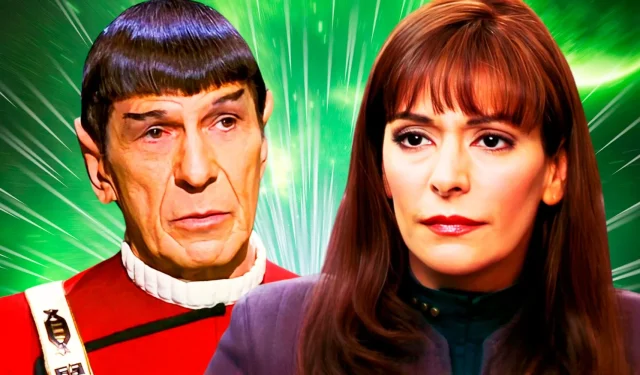
This article includes discussions around sensitive topics, including sexual assault.
Disturbing Moments in Star Trek: Nemesis Compared to Star Trek VI
Star Trek: Nemesis presents a notably jarring scene that surpasses the discomfort associated with a significant moment from Star Trek VI: The Undiscovered Country. In the climax of Star Trek VI, Lieutenant Valeris (portrayed by Kim Cattrall) is unveiled as a conspirator in the assassination of Klingon Chancellor Gorkon (played by David Warner). During the investigation, Captain Spock (Leonard Nimoy) resorts to a non-consensual mind meld to extract crucial information from Valeris regarding her accomplices. Though he successfully obtains the necessary insights, it is at the cost of inflicting psychological strain on Valeris, showcasing Spock’s struggle with the ethical implications of his actions.
While earlier films in the Star Trek: The Next Generation series often sidestepped uncomfortable content, Star Trek: Nemesis broke this precedent. Notably, during an intimate scene between Deanna Troi (Marina Sirtis) and Commander William Riker (Jonathan Frakes), the comforting image of Riker is ominously replaced by that of Shinzon (Tom Hardy). This shift occurs as Shinzon, alongside the Reman Viceroy (Ron Perlman), initiates a joint psychic assault on Troi. Despite her cries for him to relent, Shinzon persists, condescendingly referring to her as “Imzadi,”a term of endearment previously used by Riker, further intensifying the violation of her autonomy.
The Heightened Violation of Troi in Star Trek: Nemesis
The Mischaracterization of Deanna Troi
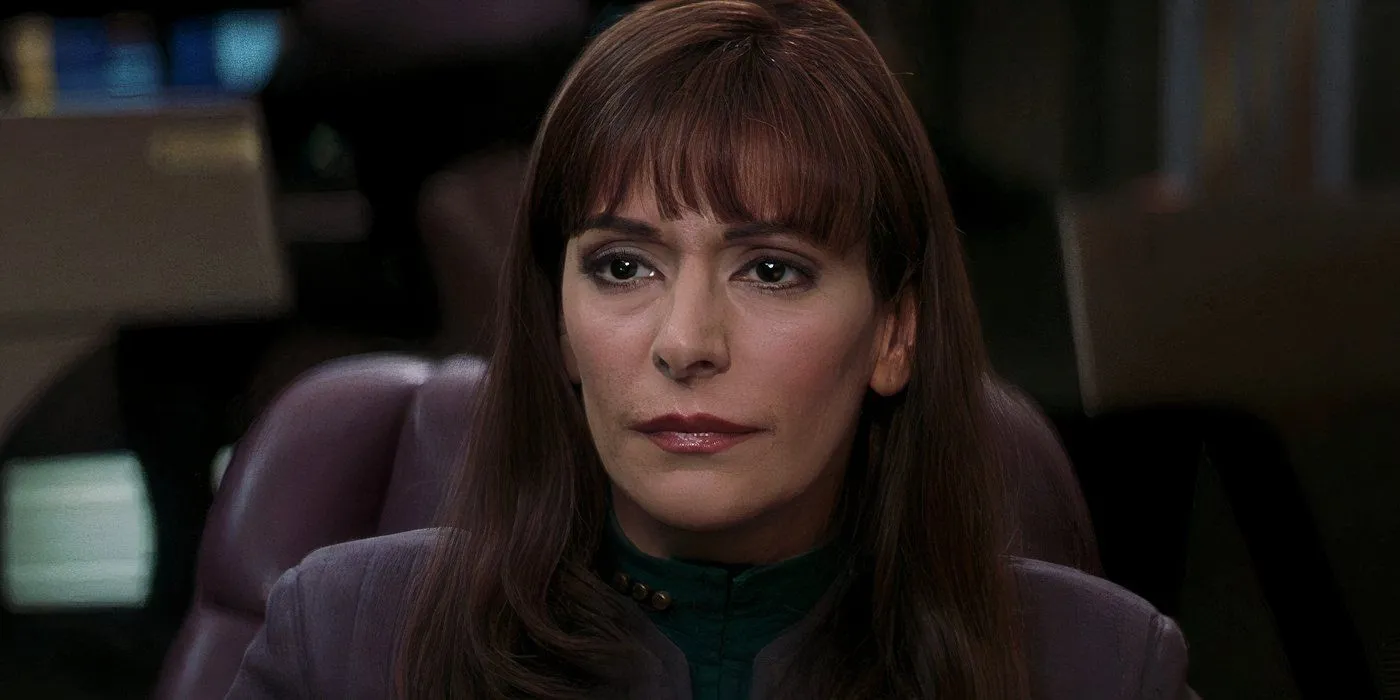
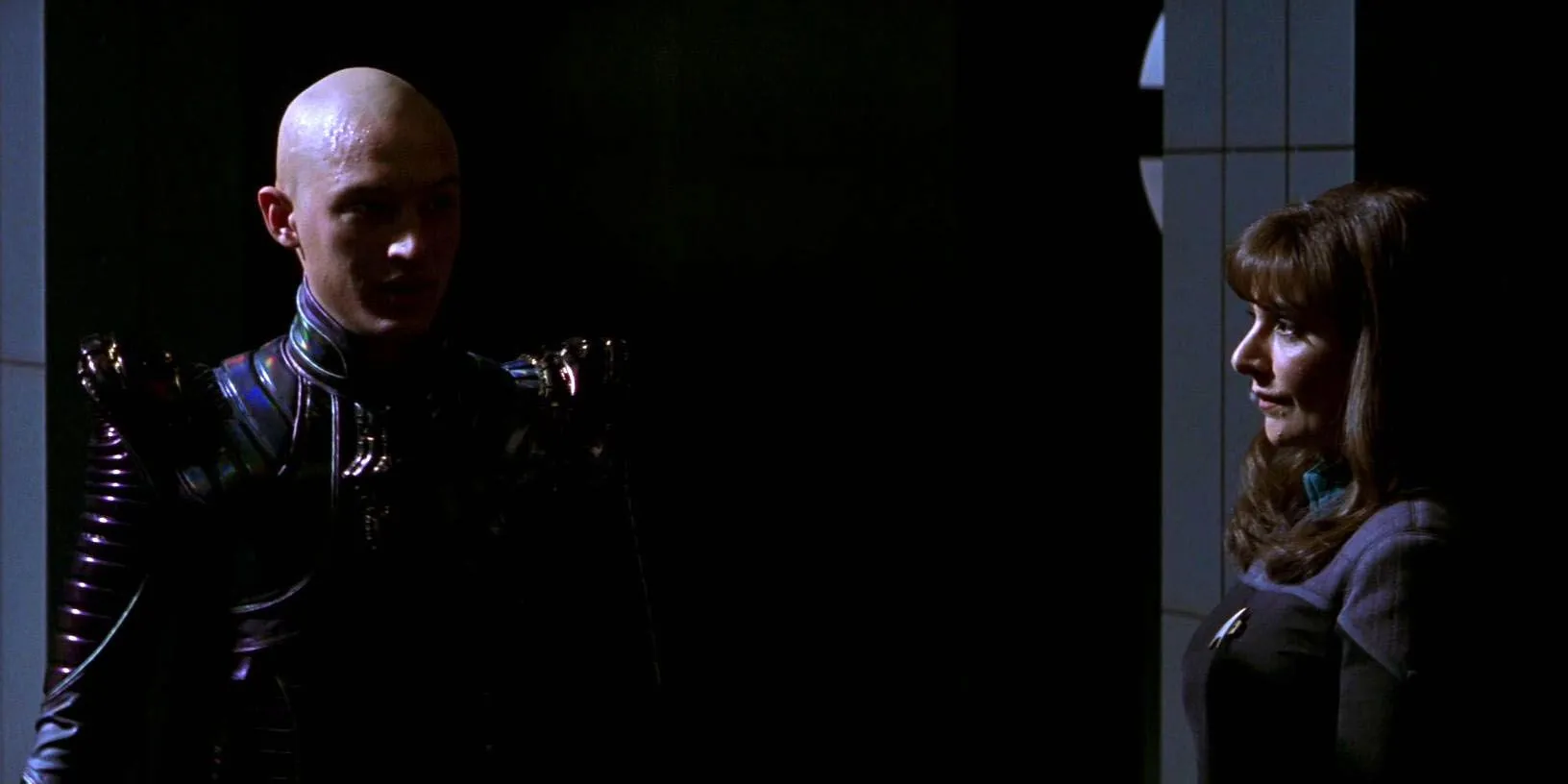
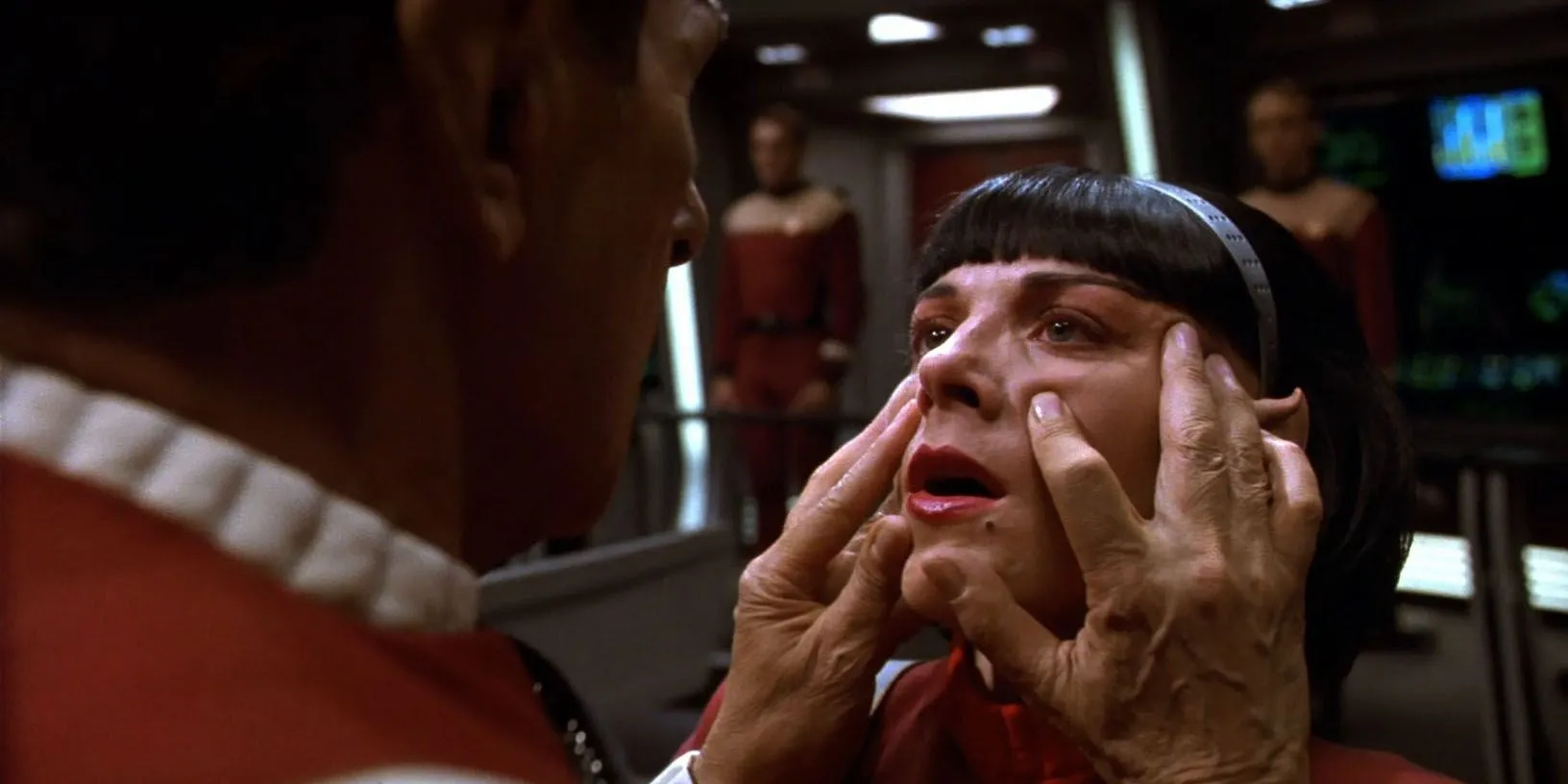
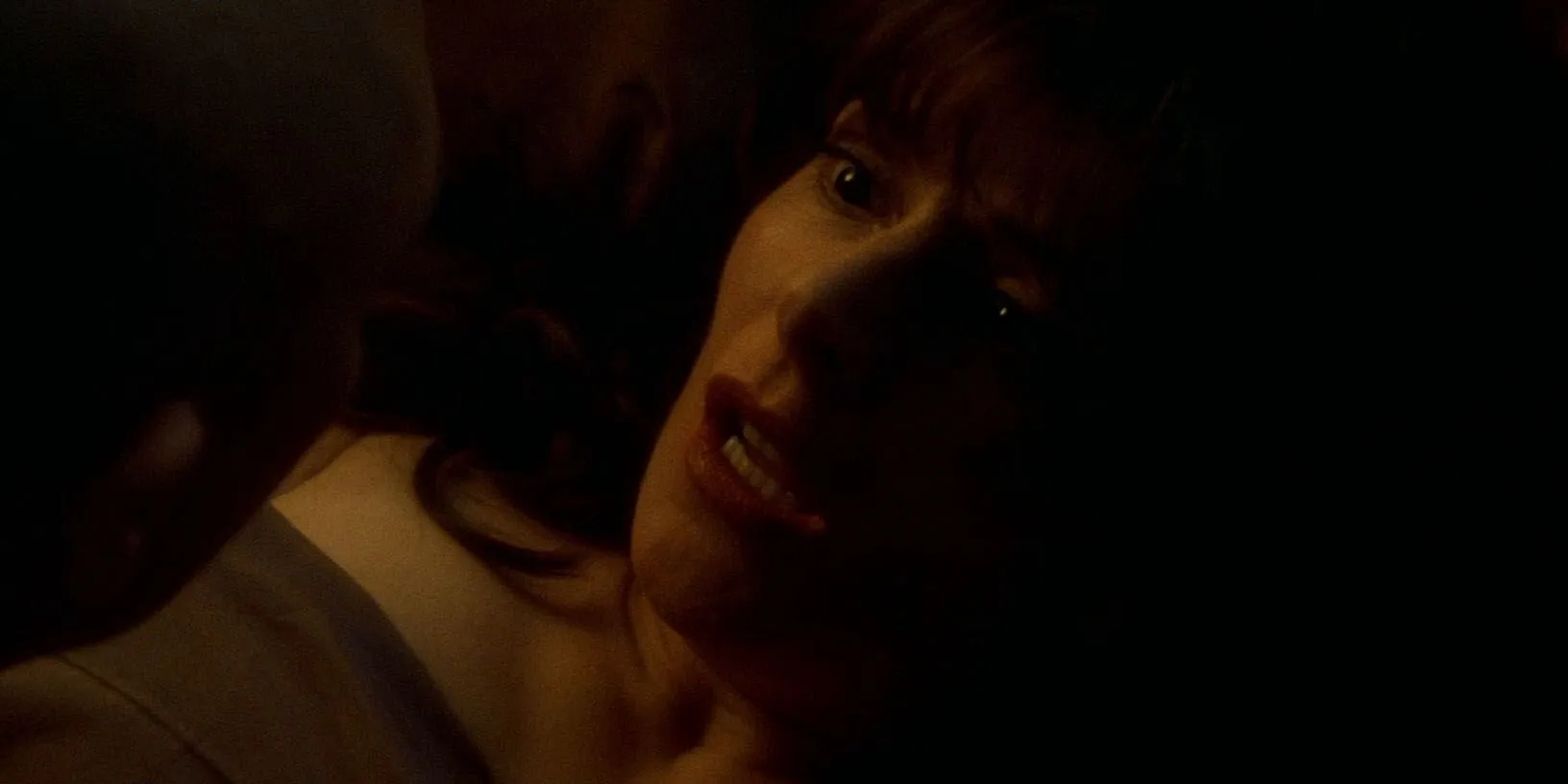
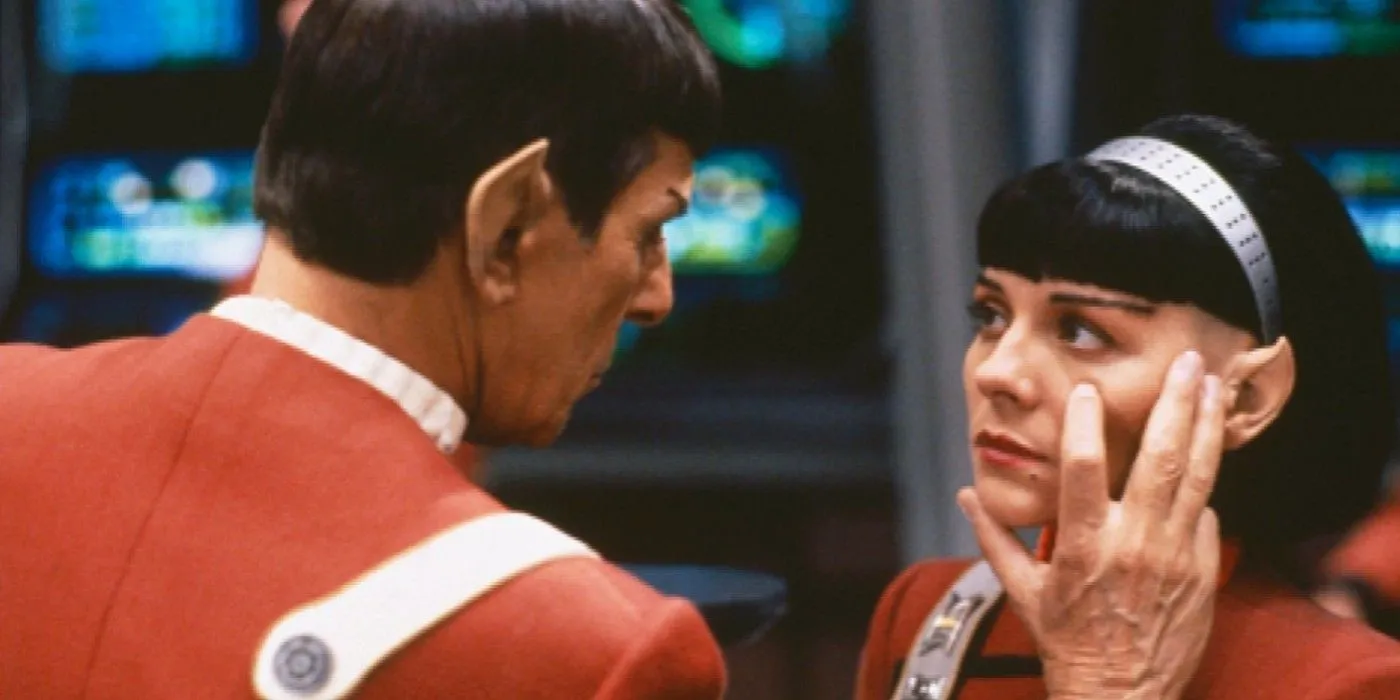
Upon comparison, the psychic violation of Deanna Troi in Nemesis emerges as a more unsettling narrative choice than Spock’s actions in Star Trek VI. While Spock’s mind meld is a morally complex act performed out of desperation to prevent conflict, the assault on Troi disrupts a tender moment between her and Riker without narrative justification. Troi is depicted as a victim in a brutal scene, which ironically undermines her character; as a powerful empath, she should be capable of confronting Shinzon without succumbing to his forceful tactics.
This portrayal of Troi emphasizes a troubling narrative trend, implying that her heroism is contingent upon her victimization. Such an approach diminishes her agency and reduces her role to that of a mere plot device to elevate the antagonists’ menace.
Examining the Disturbing Themes in Star Trek: VI & Nemesis
Reassessing Non-Consensual Scenes in the Star Trek Franchise
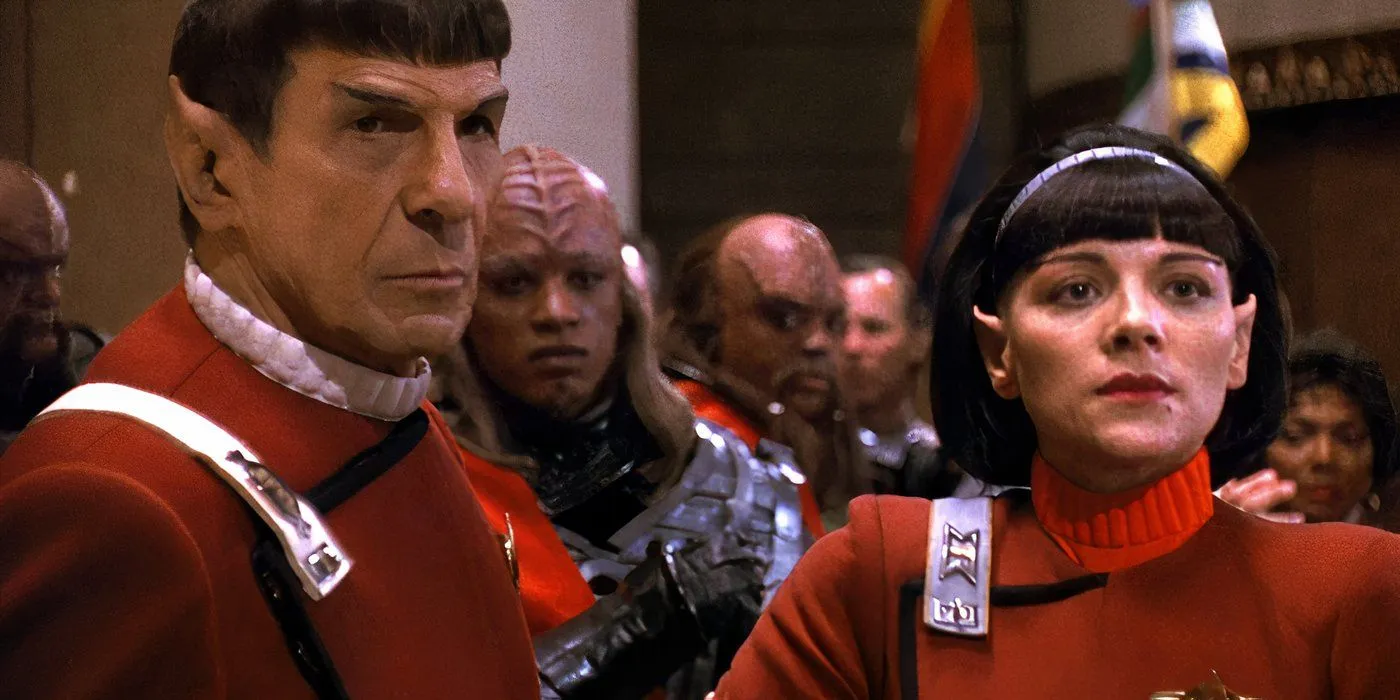
Both Star Trek VI: The Undiscovered Country and Star Trek: Nemesis explore unsettling themes that challenge the franchise’s traditional boundaries. Star Trek VI delves into complex social issues, including Captain James Kirk’s (William Shatner) prejudice against Klingons, which serves to humanize his character. The ethical dilemma surrounding Spock’s mind meld is presented succinctly and effectively without excessive elaboration.
Nicholas Meyer: “The scene where Spock is doing the Vulcan mind meld on Valeris to get information sort of looks like waterboarding to me, and doesn’t make me very happy to see it.”
Director Nicholas Meyer expressed regret over Spock’s mind meld, likening it to torture. If given a second chance, he would have approached the scene differently. In contrast, there appears to be no similar acknowledgment from the creators of Nemesis, including screenwriter John Logan, director Stuart Baird, or producer Rick Berman. The lack of consideration for the implications of Troi’s assault reflects deeper issues within the franchise’s treatment of female characters. Actress Marina Sirtis infamously criticized Baird’s direction, highlighting the problematic dynamics surrounding female representation in Star Trek: Nemesis. This oversight contributes to why the violation depicted in Nemesis is especially alarming.




Leave a Reply